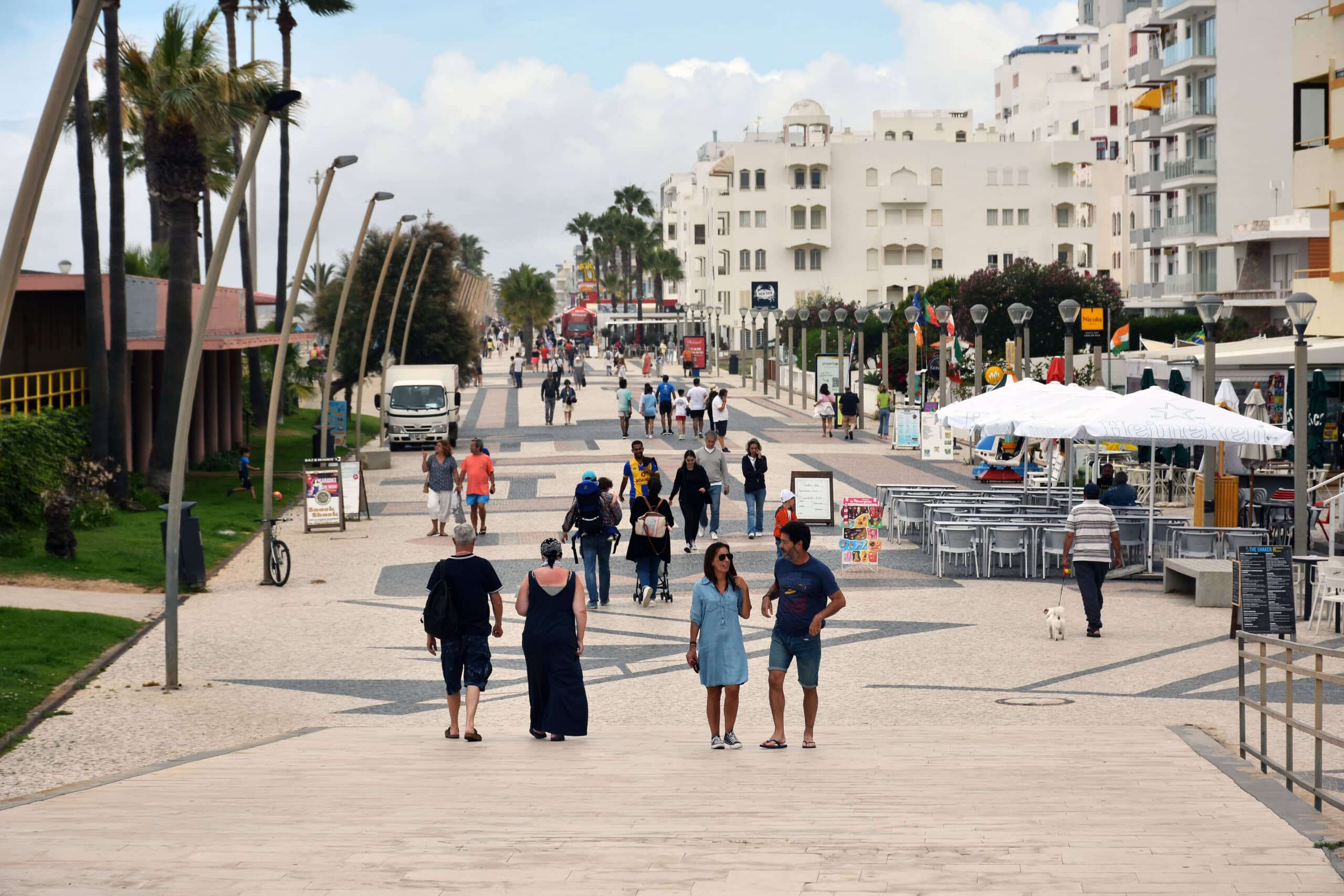40 municipalities out of 308 charge tourist tax in Portugal
The Algarve, Portugal’s prime tourism destination, has long attracted visitors from across the globe for its golden beaches, charming towns, and luxurious resorts. Despite its status as a tourism powerhouse, only seven of the region’s 16 municipalities currently charge a tourist tax, leaving many areas without the additional revenue this levy can provide.
National news agency Lusa has tallied the number of tourist taxes charged in Portugal, where just 40 out of 308 municipalities charge a tourist tax (27 municipalities out of 278 in mainland Portugal).
Currently in the Algarve region, Albufeira, Lagoa, Loulé, Portimão, Olhão, Faro, and Vila Real de Santo António apply a nightly tax on visitors, ranging from €1 (low season) to €2 (high season).
For example, guests in Faro pay €1.50 per night year-round, while municipalities such as Albufeira and Portimão charge €2 per night during the high season (April to October) and €1 in the low season (November to March). Vila Real de Santo António offers a reduced rate of €0.50 for stays in campsites or caravan areas.
Loulé, renowned for its high-end resorts like Quinta do Lago, Vale do Lobo and Vilamoura, was the most recent municipality to introduce the tax, implementing it in November 2024.
The implementation of municipal tourist taxes in the Algarve was approved in 2018 by AMAL, the association that brings together the region’s 16 municipalities, with votes in favour from every borough excluding Silves.
However, the slow adoption of the tax was targeted by the Algarve’s tourism boss in the past just over a year ago, with André Gomes stating that revenue from municipal tourist taxes provides “additional financing for tourism promotion” without depending exclusively on the State.
At the time, Gomes said that the revenue could be used for the “development of infrastructure capable of responding to both the needs and experiences of residents and tourists”.
Elsewhere in Portugal, Lisbon leads the way with a €4-per-night charge and even levies a fee on cruise ship passengers. Porto raised its tax to €3 in December 2024, citing the costs of supporting its booming tourism industry. Meanwhile, no municipalities in the Alentejo region currently impose a tourist tax.
In the Madeira archipelago, seven of the 11 boroughs currently charge €2 per night, up to a maximum of seven nights. Funchal, Santa Cruz, Santana, Ponta do Sol, Machico, Ribeira Brava and Calheta already have the measure in place, while Câmara de Lobos, São Vicente and Porto Santo plan to start it in 2025. Porto Moniz is the only one in the region not to apply the tax.
In the Azores, only visitors to the six municipalities of the island of São Miguel, out of the 19 in the archipelago, pay a tax of €2 per day for overnight stays, up to a maximum of three nights. These include Ponta Delgada, Ribeira Grande, Lagoa, Vila Franca do Campo, Povoação and Nordeste.
In mainland Portugal, each local authority sets its own tax and defines the rules for its application, but there are criteria common to all, such as exemption from payment for children (they start paying from the age of 12 in some cases, later in others) and people with a disability of 60% or more, as well as citizens who are staying for medical treatment.
There are also some councils that exclude the tourist tax, at least for one night, for those on a religious pilgrimage to Fátima or Santiago de Compostela, as is the case in Porto and Caminha, the latter since September.
Like Caminha, Viana do Castelo exempts, in addition to all the other exceptions, those who are temporarily resident in Portugal for reasons of conflict and displaced from their countries of origin.
Other municipalities that currently charge a tourist tax throughout Portugal also include Amarante, Braga, Coimbra, Cascais, Figueira da Foz, Loures, Mafra, Maia, Óbidos, Oeiras, Peniche, Póvoa de Varzim, Setúbal, Sintra and Vila Nova de Gaia.
Meanwhile, municipalities are planning to introduce tourist taxes soon. Almada, on the south bank of the Tagus River, is holding a public consultation until January 29 to revise the municipality’s Regulations and Tables of Fees, which includes the creation of a tourist tax of €2 for accommodation establishments (for a maximum of five nights) and €1.5 for camping and caravan sites. In the case of campsites, 50 cents will go to the campsites.
In Nazaré, known internationally for the giant waves of the North Beach, the implementation of the tax is being prepared and a regulation is being drawn up for public consultation. The local authority hopes to be able to start charging this new year.
Terras de Bouro, in the north eastern region of Gêres, is currently preparing regulations for a tourist tax, and Matosinhos and Baião are also among the territories where visitors will start paying a fee in 2025.




















